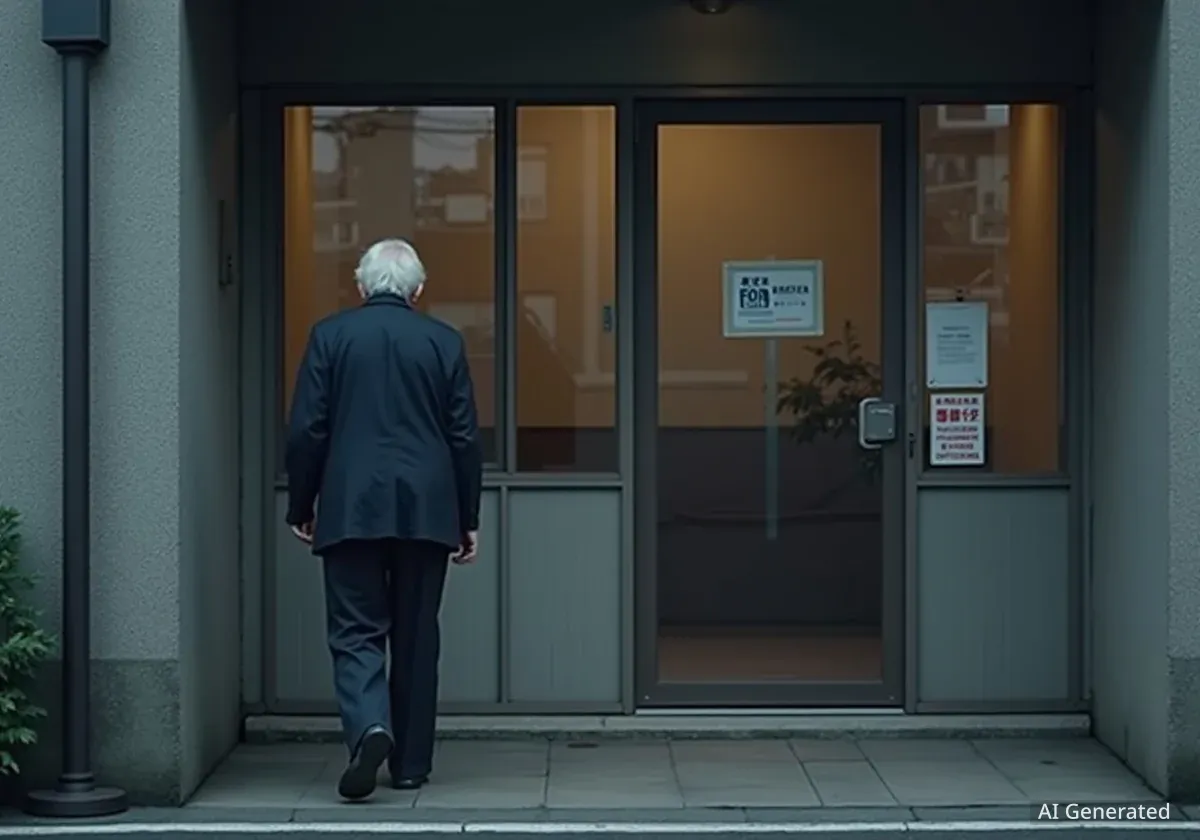A recent survey in Japan has revealed significant challenges for seniors in the rental housing market, with nearly one-third of respondents aged 65 or older reporting that they have been denied a rental property specifically because of their age. The data highlights a growing issue in a country with a rapidly aging population.
The online survey, conducted in July by R65 Fudōsan, a real estate agency specializing in properties for seniors, found that 42.8% of older adults described the process of finding a rental home as either "somewhat" or "very" difficult. These figures point to systemic barriers facing a vulnerable demographic seeking suitable living arrangements.
Key Takeaways
- A survey found 30.4% of Japanese seniors (age 65+) have had rental applications rejected due to their age.
- Overall, 42.8% of senior respondents find it difficult to secure a rental property.
- The primary motivation for moving is to find a home with a more suitable layout (36.2%).
- The biggest frustration for seniors searching for housing is a lack of available properties, cited by 52.8% of participants.
Widespread Difficulties in the Rental Market
The study from R65 Fudōsan provides clear data on the housing obstacles faced by Japan's senior citizens. The most direct finding was that 30.4%, or nearly one in three seniors, have experienced explicit rejection from real estate agencies or landlords because of their age.
This discrimination contributes to a broader sense of difficulty in the housing search. When combined, a total of 42.8% of respondents expressed that finding a place to rent was a challenging experience. This suggests that even for those who are not explicitly rejected, the process is fraught with obstacles that are less common for younger applicants.
Context: Japan's Aging Demographics
Japan has one of the world's most rapidly aging populations. According to government data, people aged 65 and over make up nearly 30% of the total population. This demographic shift places increasing pressure on social systems, including the housing market, where landlords may be hesitant to rent to seniors due to concerns about fixed incomes, health issues, or the possibility of a tenant dying alone.
Why Seniors Are Seeking New Homes
The survey also explored the reasons why seniors are looking to move. The motivations are often practical and tied to life changes that accompany aging. The desire for a home with a more appropriate physical layout was the most common reason, cited by 36.2% of participants. This often relates to needing single-story living, accessibility features, or a smaller, more manageable space.
Financial considerations are also a significant factor. The second most common reason for moving was to find a property with lower rent, mentioned by 23.6% of respondents. This aligns with the transition into retirement, as many seniors move from full-time employment to living on pensions or savings, necessitating a reduction in living expenses.
Top Reasons for Seniors to Move
- 36.2% want a home with a more suitable layout.
- 23.6% want to move to a location with lower rent.
- Other factors include changes in employment status and a desire to downsize after retirement.
Major Frustrations During the Housing Search
When seniors begin looking for a new rental home, they encounter several key frustrations. According to the survey, the single biggest problem is a simple lack of options. A majority of respondents, 52.8%, stated that there were "not enough prospective properties" available to them.
This scarcity of suitable and welcoming properties is a major barrier. It suggests that many landlords and property managers are unwilling to list their properties as being open to senior tenants, severely limiting the available pool of homes.
Financial and Practical Hurdles
Beyond the limited availability, financial burdens present another significant obstacle. Nearly one-third of seniors (31.3%) reported that the "larger than usual financial burden" associated with initial costs like security deposits and key money was a major point of frustration.
Furthermore, 17.3% of respondents felt they were being shown properties that did not meet their stated needs. This indicates that real estate agents may not be adequately addressing the specific requirements of older clients, such as accessibility or proximity to medical services, instead showing them whatever is available.
The data clearly shows that a lack of suitable properties and financial hurdles are the primary frustrations, compounding the issue of age-based rejection that many seniors face in the Japanese rental market.
Implications for an Aging Society
The findings from the R65 Fudōsan survey underscore a significant social challenge in Japan. As the number of senior citizens continues to grow, ensuring access to safe and affordable housing is critical. The prevalence of age-based discrimination in the rental market can lead to housing instability for a population that is often on a fixed income and may have specific health and mobility needs.
Addressing this issue will likely require a combination of policy changes, incentives for landlords to rent to seniors, and the development of more senior-friendly housing options. Without intervention, the difficulty of finding a home in later life may become an even more widespread problem, affecting millions of people across the country.





